
aiosmb
Fully asynchronous SMB library written in pure python
Stars: 202
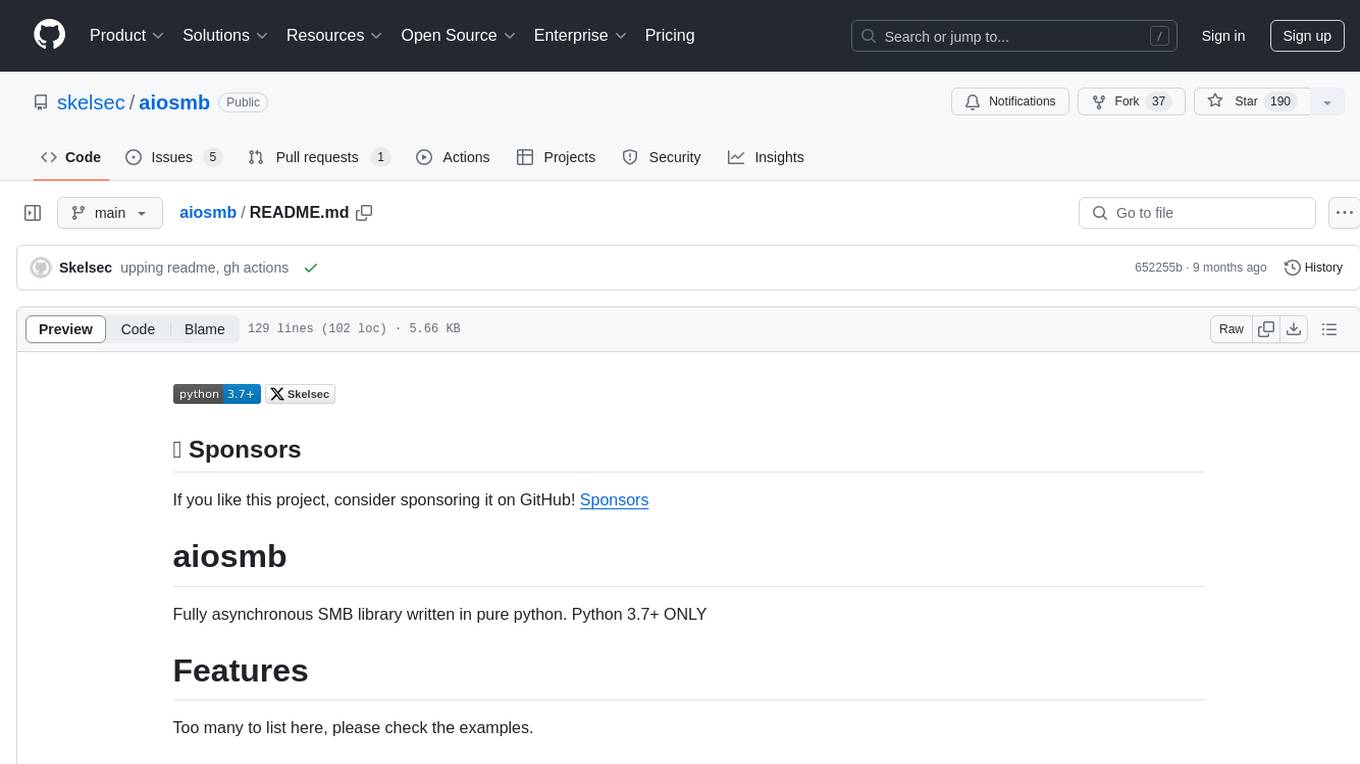
aiosmb is a fully asynchronous SMB library written in pure Python, supporting Python 3.7 and above. It offers various authentication methods such as Kerberos, NTLM, SSPI, and NEGOEX. The library supports connections over TCP and QUIC protocols, with proxy support for SOCKS4 and SOCKS5. Users can specify an SMB connection using a URL format, making it easier to authenticate and connect to SMB hosts. The project aims to implement DCERPC features, VSS mountpoint operations, and other enhancements in the future. It is inspired by Impacket and AzureADJoinedMachinePTC projects.
README:
If you like this project, consider purchasing licenses of OctoPwn, our full pentesting suite that runs in your browser!
For notifications on new builds/releases and other info, hop on to our Discord
Fully asynchronous SMB library written in pure python. Python 3.8+ ONLY
This project, alongside with many other pentester tools runs in the browser with the power of OctoPwn!
Check out the community version at OctoPwn - Live
Too many to list here, please check the examples.
| Kirbi | CCACHE | AES/RC4/DES keys | NT hash | Password | Certificate | Certificate (PFX/PEM) | Certstore (Windows) | |
|---|---|---|---|---|---|---|---|---|
| Supported | Y | Y | Y | Y | Y | Y | Y | Y |
| LM hash | NT hash | Password | |
|---|---|---|---|
| Supported | N | Y | Y |
Only on Windows.
This auth method uses the current user context. If you are NT/SYSTEM then it will use the machine account credentials.
| NTLM | Kerberos | |
|---|---|---|
| Supported | Y | Y |
| Certificate (PFX) | Certstore (Windows) | |
|---|---|---|
| Supported | Y | Y (using current user) |
This library also supports QUIC connection to Azure hosts
| Protocol | Supproted |
|---|---|
| UDP | N |
| TCP | Y |
| QUIC | Y |
Supports Socks4 and Socks5 natively. Socks5 currently not supporting authentication.
Bear in mind, that proxy support doesnt always play well with all auth methods, see this table below.
| SOCKS4 | SOCKS4A | SOCKS5 | |
|---|---|---|---|
| NTLM | Y | Y | Y |
| Kerberos | N (incompatible) | Y | Y |
| SSPI | Y (only local users) | Y (only local users) | Y (only local users) |
| NEGOEX | Y | Y | Y |
I managed to condense all information needed to specify an SMB connection into an URL format.
It looks like this:
dialect-network+authmethod://user:secret@target:port/?param1=value1¶m2=value2
dialect fomat: smbX/smbXXX
Where version: 2 for any SBM2 3 for any SMB3 dialects, or specific 3 character code like 200 or 201 or 300...
network format: tcp or quic (leave empty for TCP)
authmethod format: auth-type
Where auth: ntlm or kerberos or sspi or negext
Where type: password or nt or aes or rc4 or kirbi ...
user format: DOMAIN\username
Where DOMAIN: your domain
Where username: your username
secret format: Depends on the authmethod's type value
target format: IP address or hostname of the target
port format: integer describing the port
The following parameters are used (the user victim is trying to log in to the domain controller):
Username: victim
Domain: TEST
Passowrd: Passw0rd!1
DC IP address: 10.10.10.2
DC hostname: win2019ad
Socks4 proxy serer: 127.0.0.1
Socks4 proxy port : 9050
smb+ntlm-password://TEST\victim:[email protected]
smb+ntlm-nt://TEST\victim:[email protected]
smb+sspi-ntlm://10.10.10.2
smb+kerberos-password://TEST\victim:[email protected]/?dc=10.10.10.2
smb+kerberos-nt://TEST\victim:[email protected]/?dc=10.10.10.2
smb2+kerberos-pfx://user.pfx:[email protected]/?dc=10.10.10.2
smb2+kerberos-pem://cert.pem:[email protected]/?dc=10.10.10.2
smb2+kerberos-pem://cert.pem:[email protected]/?dc=10.10.10.2
smb+sspi-kerberos://win2019ad.test.corp
smb+ntlm-password://TEST\victim:[email protected]/?proxyhost=127.0.0.1&proxyport=9050
smb+ntlm-password://TEST\victim:[email protected]/?timeout=60
smb+negoex-pfx://certificate.pfx:[email protected]/
Example 12 - Negoex certstore auth using certificate from the current user's certstore (Windows only). (eg. Azure P2P auth)
smb+negoex-certstore://<subject CN of the certificate to use>@10.10.10.2/
- DCERPC: in progress, lot of features working already
- VSS mountpoint operations
- a lot of other things
This project is heavily based on the Impacket orignally by @agsolino.
The DCERPC strucutre definitions and DCERPC parsing in this project is almost identical to the Impacket project.
NEGOEX protocol implementation was based on AzureADJoinedMachinePTC created by @rubin_mor
Certificate request functionality was based on certi created by @zer1t0
For Tasks:
Click tags to check more tools for each tasksFor Jobs:
Alternative AI tools for aiosmb
Similar Open Source Tools

aiosmb
aiosmb is a fully asynchronous SMB library written in pure Python, supporting Python 3.7 and above. It offers various authentication methods such as Kerberos, NTLM, SSPI, and NEGOEX. The library supports connections over TCP and QUIC protocols, with proxy support for SOCKS4 and SOCKS5. Users can specify an SMB connection using a URL format, making it easier to authenticate and connect to SMB hosts. The project aims to implement DCERPC features, VSS mountpoint operations, and other enhancements in the future. It is inspired by Impacket and AzureADJoinedMachinePTC projects.
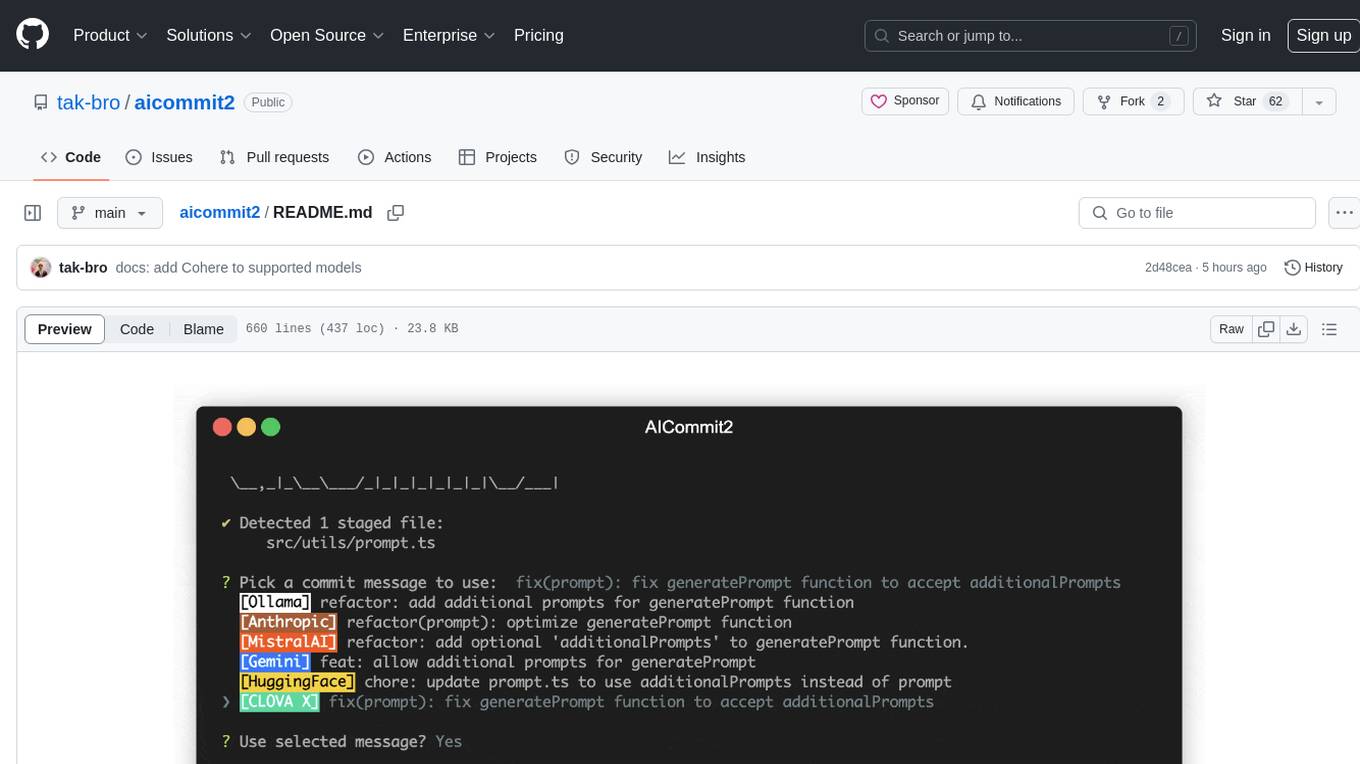
aicommit2
AICommit2 is a Reactive CLI tool that streamlines interactions with various AI providers such as OpenAI, Anthropic Claude, Gemini, Mistral AI, Cohere, and unofficial providers like Huggingface and Clova X. Users can request multiple AI simultaneously to generate git commit messages without waiting for all AI responses. The tool runs 'git diff' to grab code changes, sends them to configured AI, and returns the AI-generated commit message. Users can set API keys or Cookies for different providers and configure options like locale, generate number of messages, commit type, proxy, timeout, max-length, and more. AICommit2 can be used both locally with Ollama and remotely with supported providers, offering flexibility and efficiency in generating commit messages.
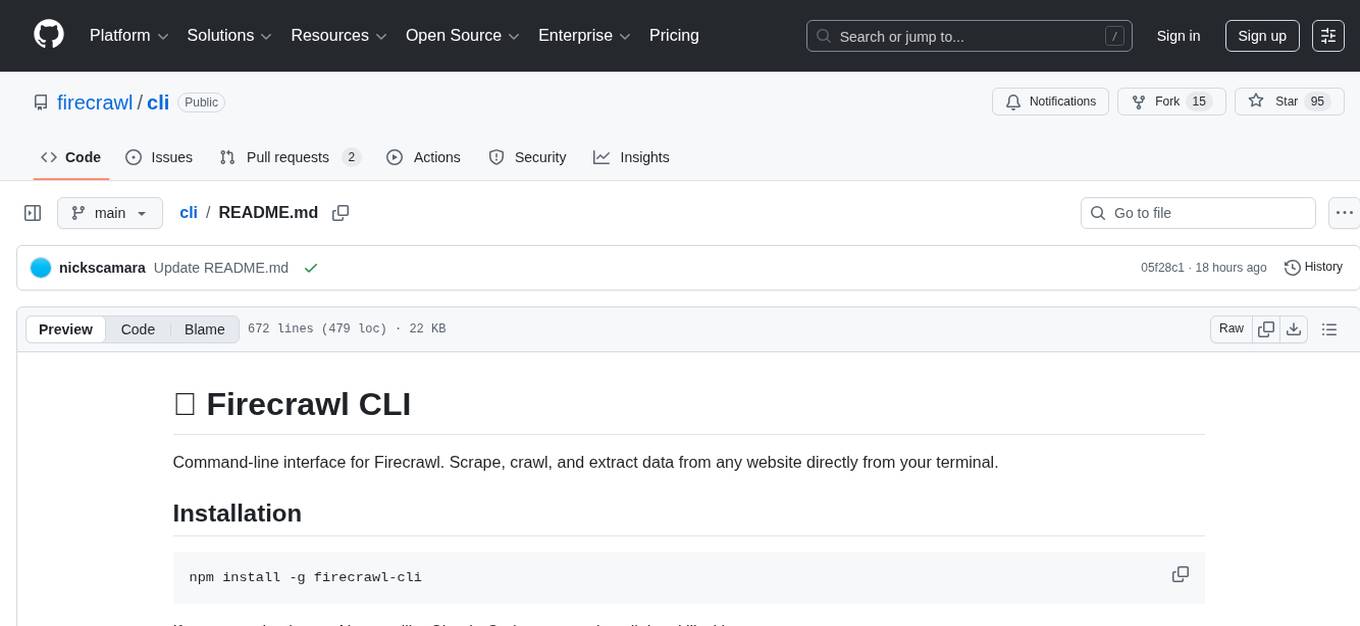
cli
Firecrawl CLI is a command-line interface tool that allows users to scrape, crawl, and extract data from any website directly from the terminal. It provides various commands for tasks such as scraping single URLs, searching the web, mapping URLs on a website, crawling entire websites, checking credit usage, running AI-powered web data extraction, launching browser sandbox sessions, configuring settings, and viewing current configuration. The tool offers options for authentication, output handling, tips & tricks, CI/CD usage, and telemetry. Users can interact with the tool to perform web scraping tasks efficiently and effectively.
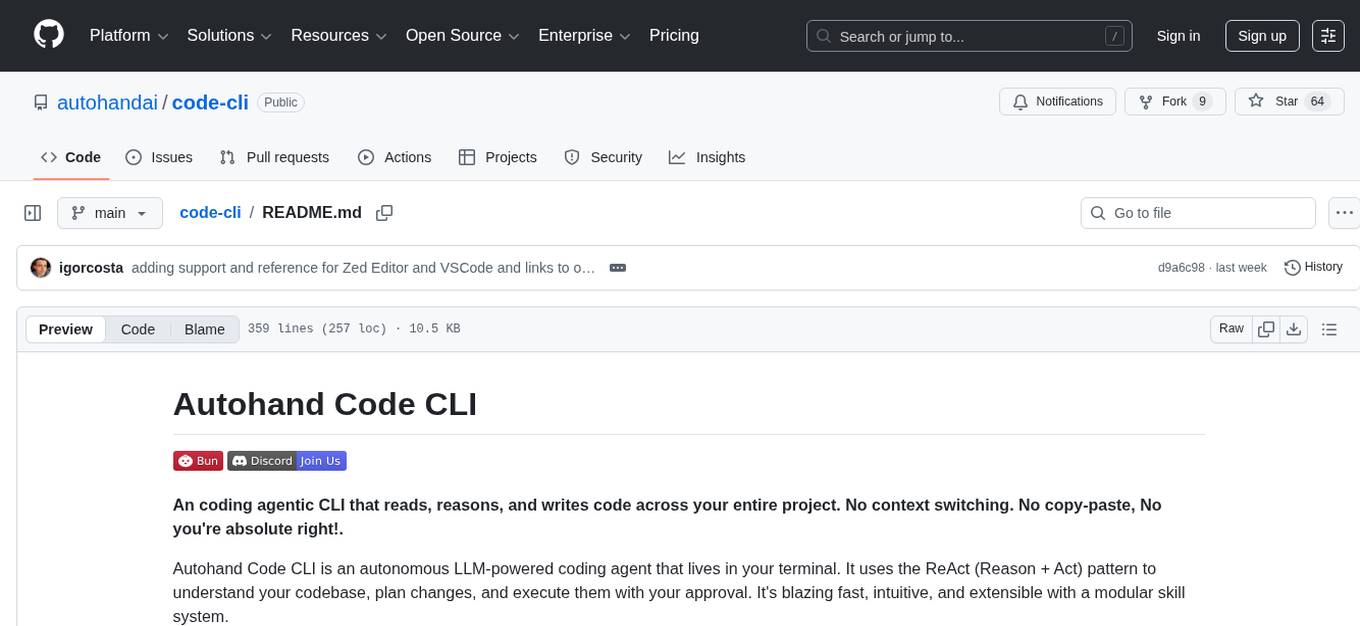
code-cli
Autohand Code CLI is an autonomous coding agent in CLI form that uses the ReAct pattern to understand, plan, and execute code changes. It is designed for seamless coding experience without context switching or copy-pasting. The tool is fast, intuitive, and extensible with modular skills. It can be used to automate coding tasks, enforce code quality, and speed up development. Autohand can be integrated into team workflows and CI/CD pipelines to enhance productivity and efficiency.
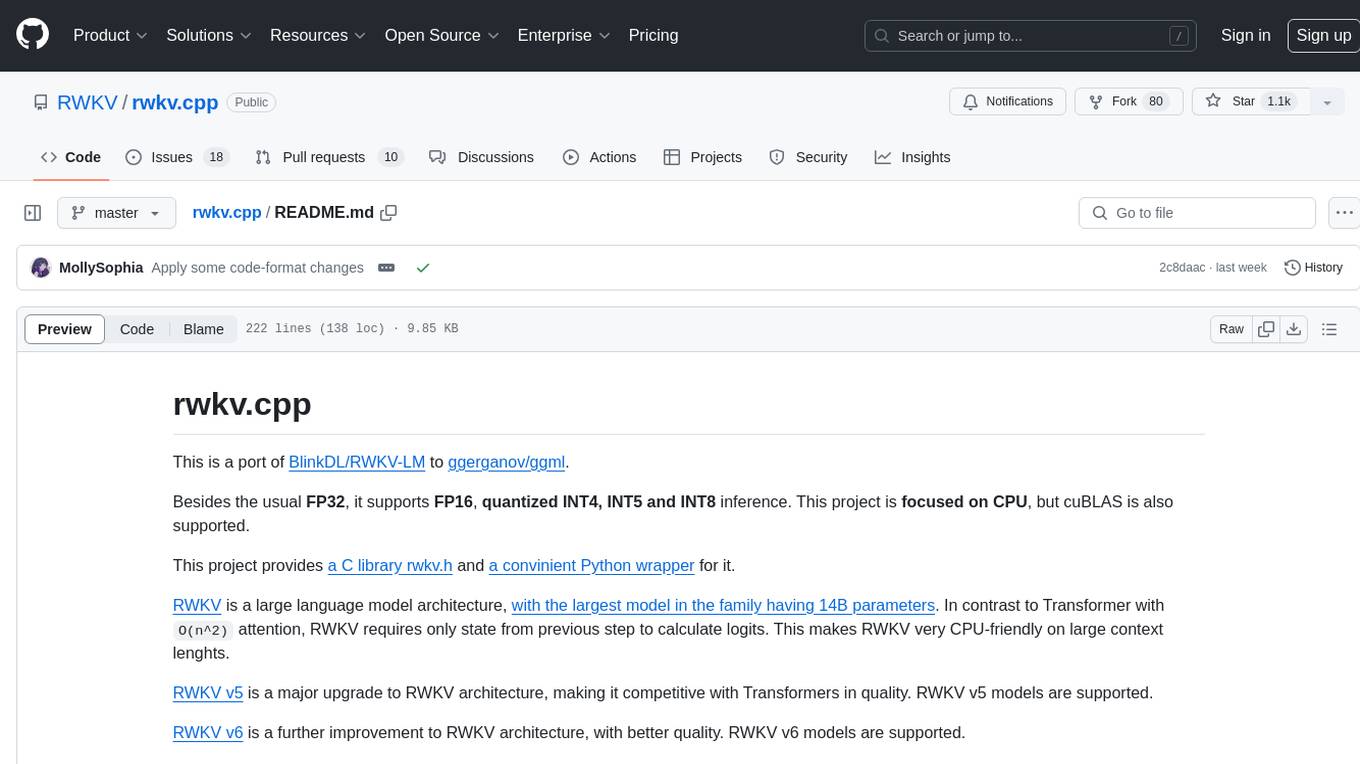
rwkv.cpp
rwkv.cpp is a port of BlinkDL/RWKV-LM to ggerganov/ggml, supporting FP32, FP16, and quantized INT4, INT5, and INT8 inference. It focuses on CPU but also supports cuBLAS. The project provides a C library rwkv.h and a Python wrapper. RWKV is a large language model architecture with models like RWKV v5 and v6. It requires only state from the previous step for calculations, making it CPU-friendly on large context lengths. Users are advised to test all available formats for perplexity and latency on a representative dataset before serious use.

BricksLLM
BricksLLM is a cloud native AI gateway written in Go. Currently, it provides native support for OpenAI, Anthropic, Azure OpenAI and vLLM. BricksLLM aims to provide enterprise level infrastructure that can power any LLM production use cases. Here are some use cases for BricksLLM: * Set LLM usage limits for users on different pricing tiers * Track LLM usage on a per user and per organization basis * Block or redact requests containing PIIs * Improve LLM reliability with failovers, retries and caching * Distribute API keys with rate limits and cost limits for internal development/production use cases * Distribute API keys with rate limits and cost limits for students
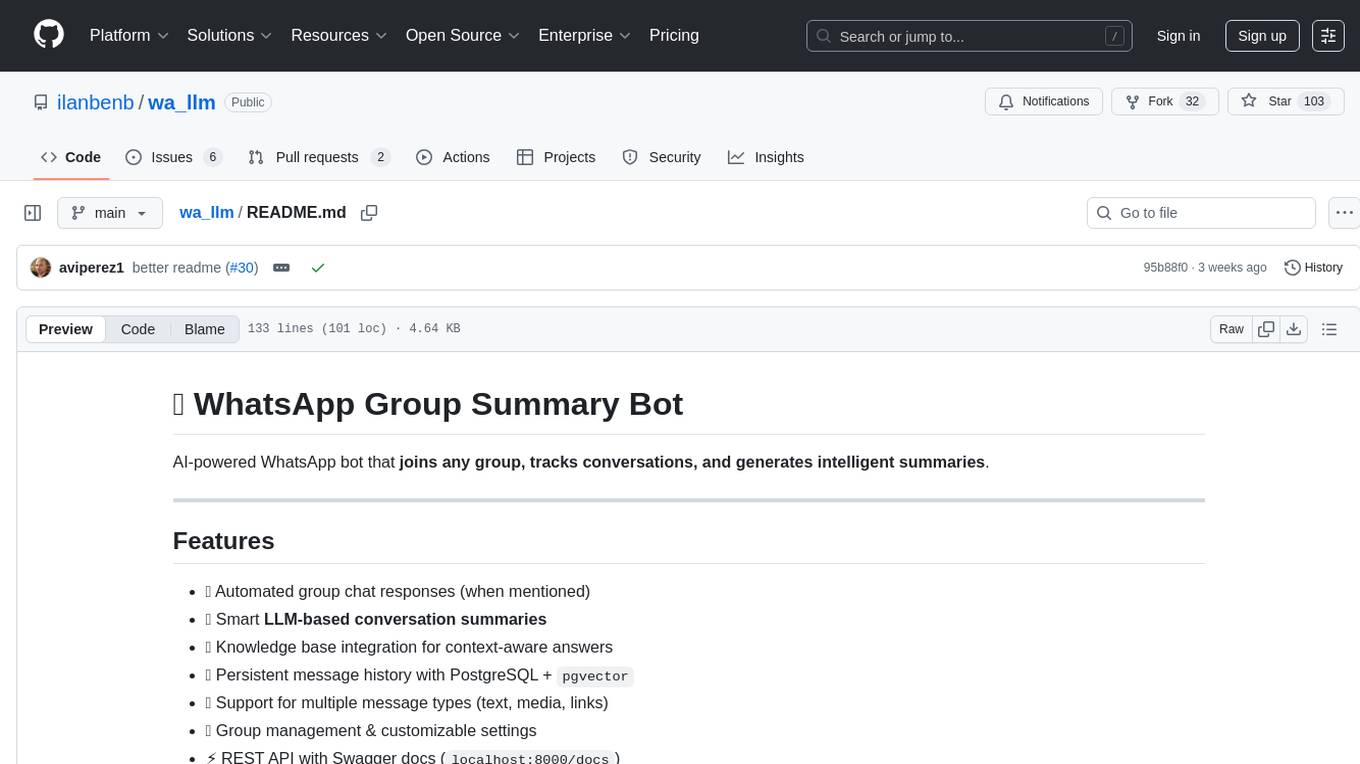
wa_llm
WhatsApp Group Summary Bot is an AI-powered tool that joins WhatsApp groups, tracks conversations, and generates intelligent summaries. It features automated group chat responses, LLM-based conversation summaries, knowledge base integration, persistent message history with PostgreSQL, support for multiple message types, group management, and a REST API with Swagger docs. Prerequisites include Docker, Python 3.12+, PostgreSQL with pgvector extension, Voyage AI API key, and a WhatsApp account for the bot. The tool can be quickly set up by cloning the repository, configuring environment variables, starting services, and connecting devices. It offers API usage for loading new knowledge base topics and generating & dispatching summaries to managed groups. The project architecture includes FastAPI backend, WhatsApp Web API client, PostgreSQL database with vector storage, and AI-powered message processing.
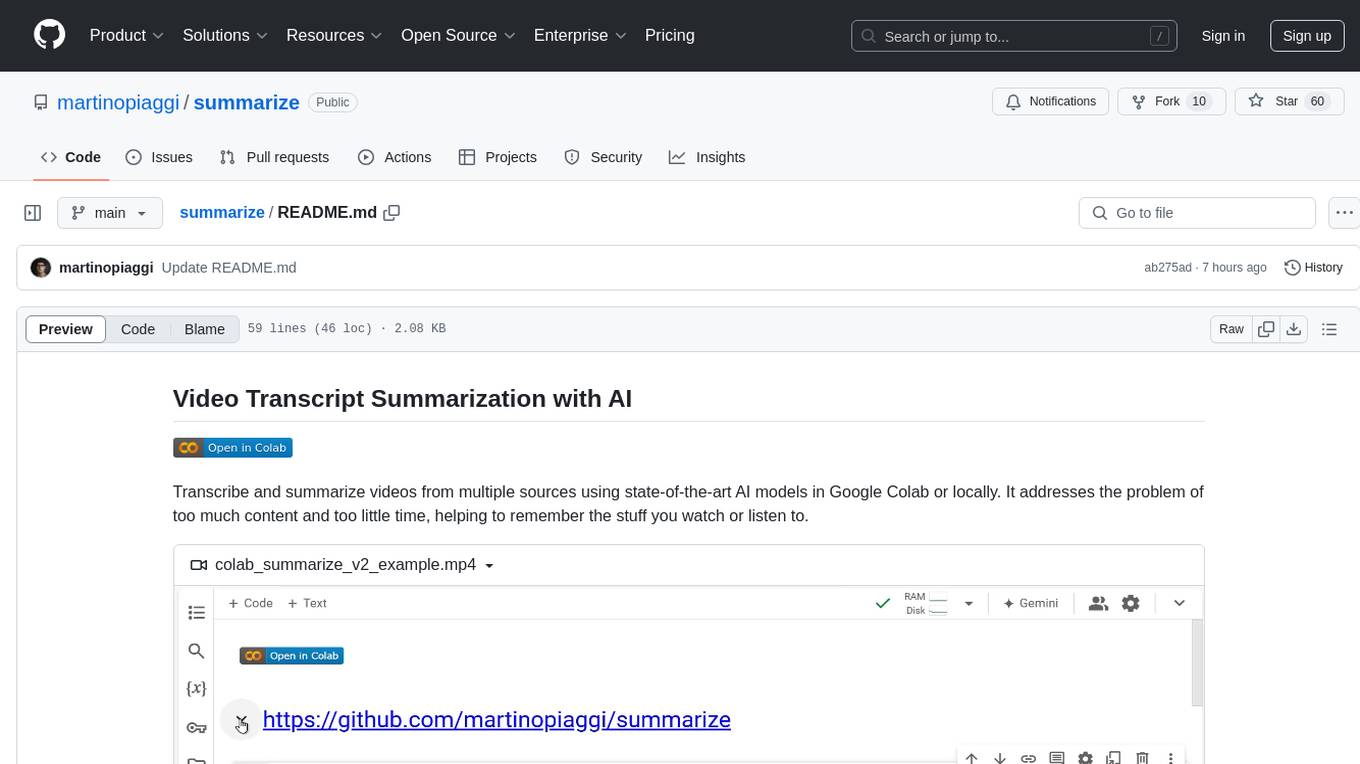
summarize
The 'summarize' tool is designed to transcribe and summarize videos from various sources using AI models. It helps users efficiently summarize lengthy videos, take notes, and extract key insights by providing timestamps, original transcripts, and support for auto-generated captions. Users can utilize different AI models via Groq, OpenAI, or custom local models to generate grammatically correct video transcripts and extract wisdom from video content. The tool simplifies the process of summarizing video content, making it easier to remember and reference important information.
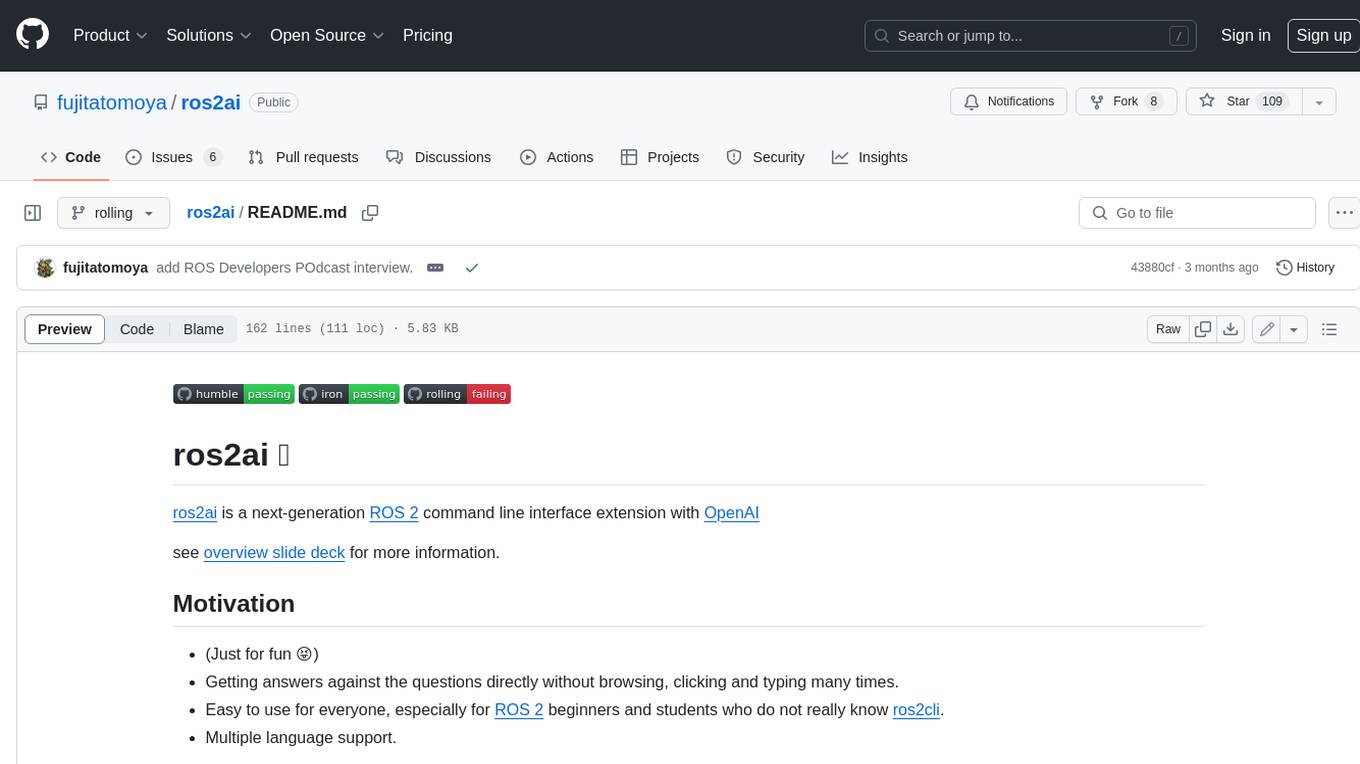
ros2ai
ros2ai is a next-generation ROS 2 command line interface extension with OpenAI. It allows users to ask questions about ROS 2, get answers, and execute commands using natural language. ros2ai is easy to use, especially for ROS 2 beginners and students who do not really know ros2cli. It supports multiple languages and is available as a Docker container or can be built from source.
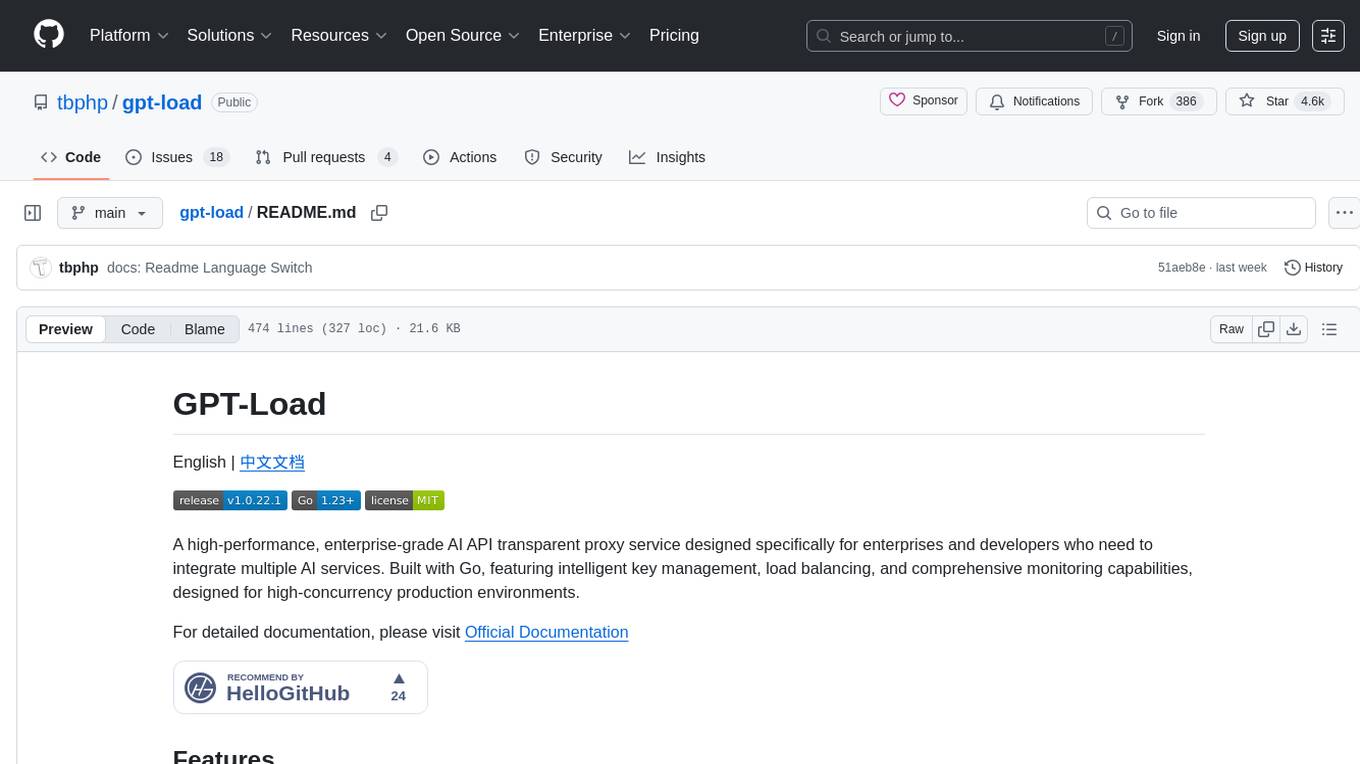
gpt-load
GPT-Load is a high-performance, enterprise-grade AI API transparent proxy service designed for enterprises and developers needing to integrate multiple AI services. Built with Go, it features intelligent key management, load balancing, and comprehensive monitoring capabilities for high-concurrency production environments. The tool serves as a transparent proxy service, preserving native API formats of various AI service providers like OpenAI, Google Gemini, and Anthropic Claude. It supports dynamic configuration, distributed leader-follower deployment, and a Vue 3-based web management interface. GPT-Load is production-ready with features like dual authentication, graceful shutdown, and error recovery.
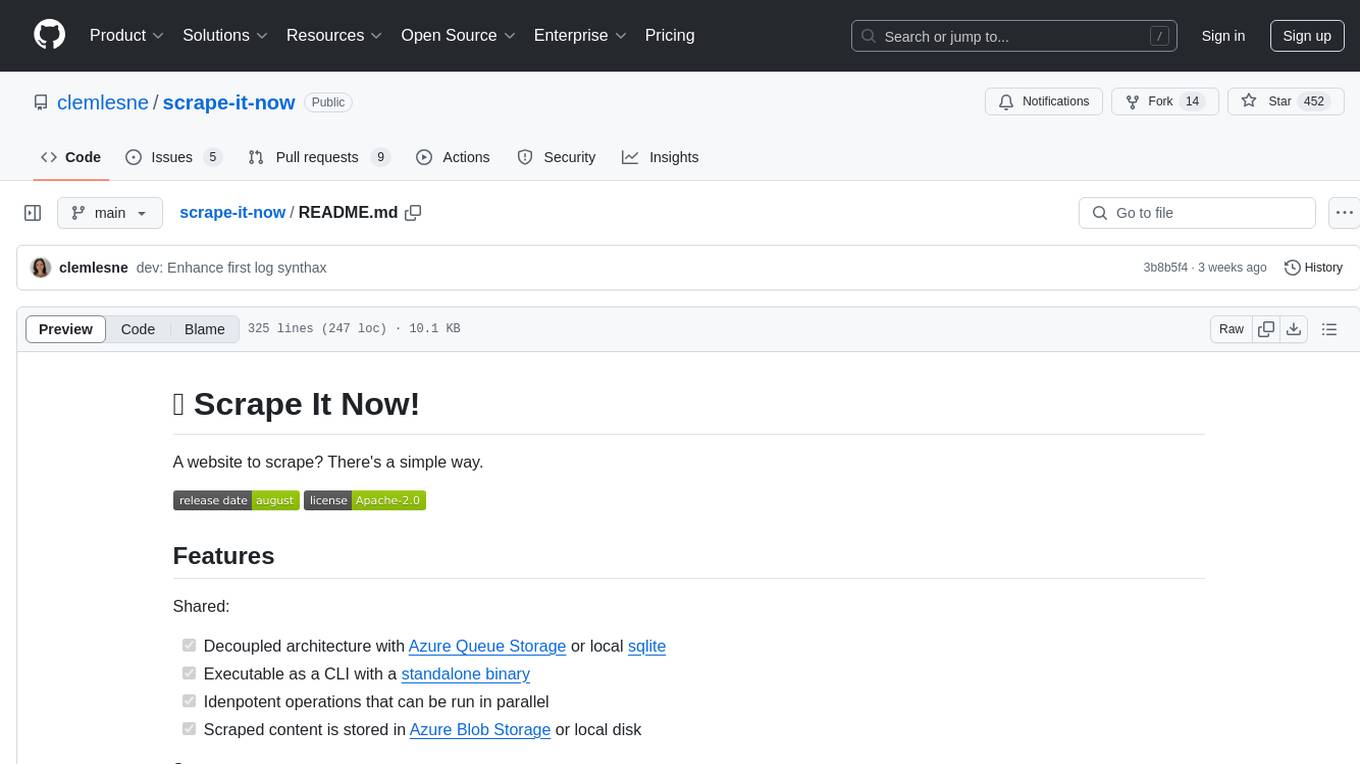
scrape-it-now
Scrape It Now is a versatile tool for scraping websites with features like decoupled architecture, CLI functionality, idempotent operations, and content storage options. The tool includes a scraper component for efficient scraping, ad blocking, link detection, markdown extraction, dynamic content loading, and anonymity features. It also offers an indexer component for creating AI search indexes, chunking content, embedding chunks, and enabling semantic search. The tool supports various configurations for Azure services and local storage, providing flexibility and scalability for web scraping and indexing tasks.

llm_processes
This repository contains code for LLM Processes, which focuses on generating numerical predictive distributions conditioned on natural language. It supports various LLMs through Hugging Face transformer APIs and includes experiments on prompt engineering, 1D synthetic data, comparison to LLMTime, Fashion MNIST, black-box optimization, weather regression, in-context learning, and text conditioning. The code requires Python 3.9+, PyTorch 2.3.0+, and other dependencies for running experiments and reproducing results.
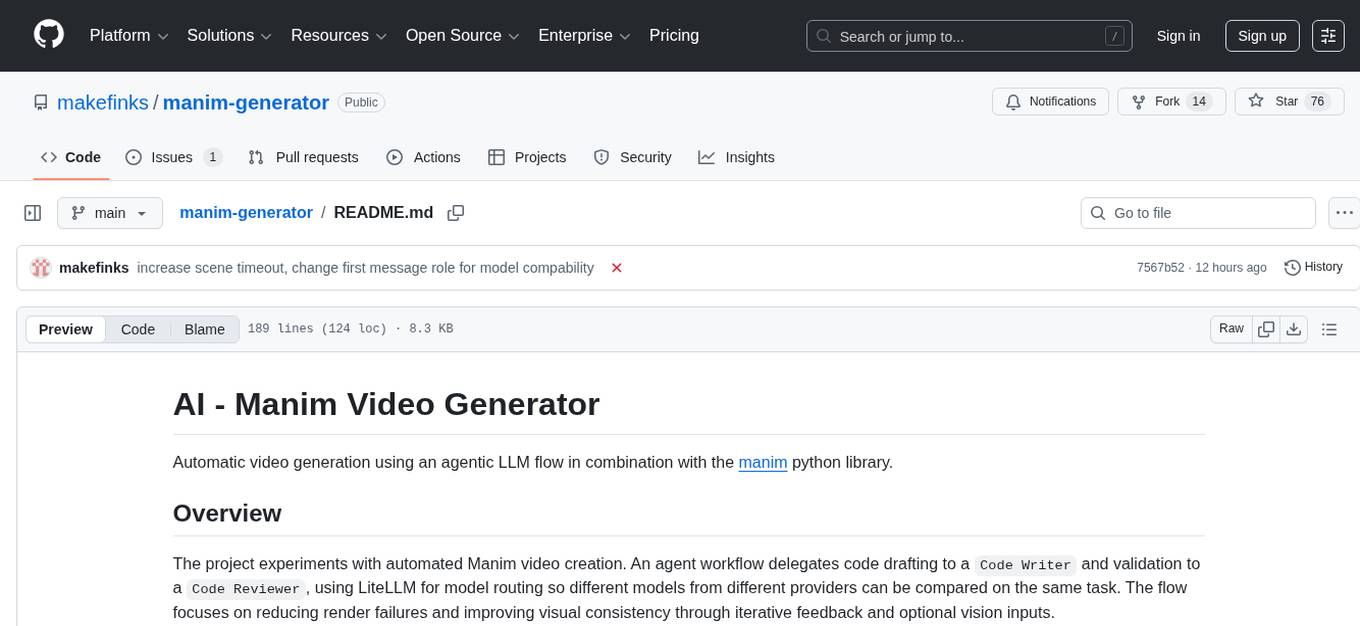
manim-generator
The 'manim-generator' repository focuses on automatic video generation using an agentic LLM flow combined with the manim python library. It experiments with automated Manim video creation by delegating code drafting and validation to specific roles, reducing render failures, and improving visual consistency through iterative feedback and vision inputs. The project also includes 'Manim Bench' for comparing AI models on full Manim video generation.
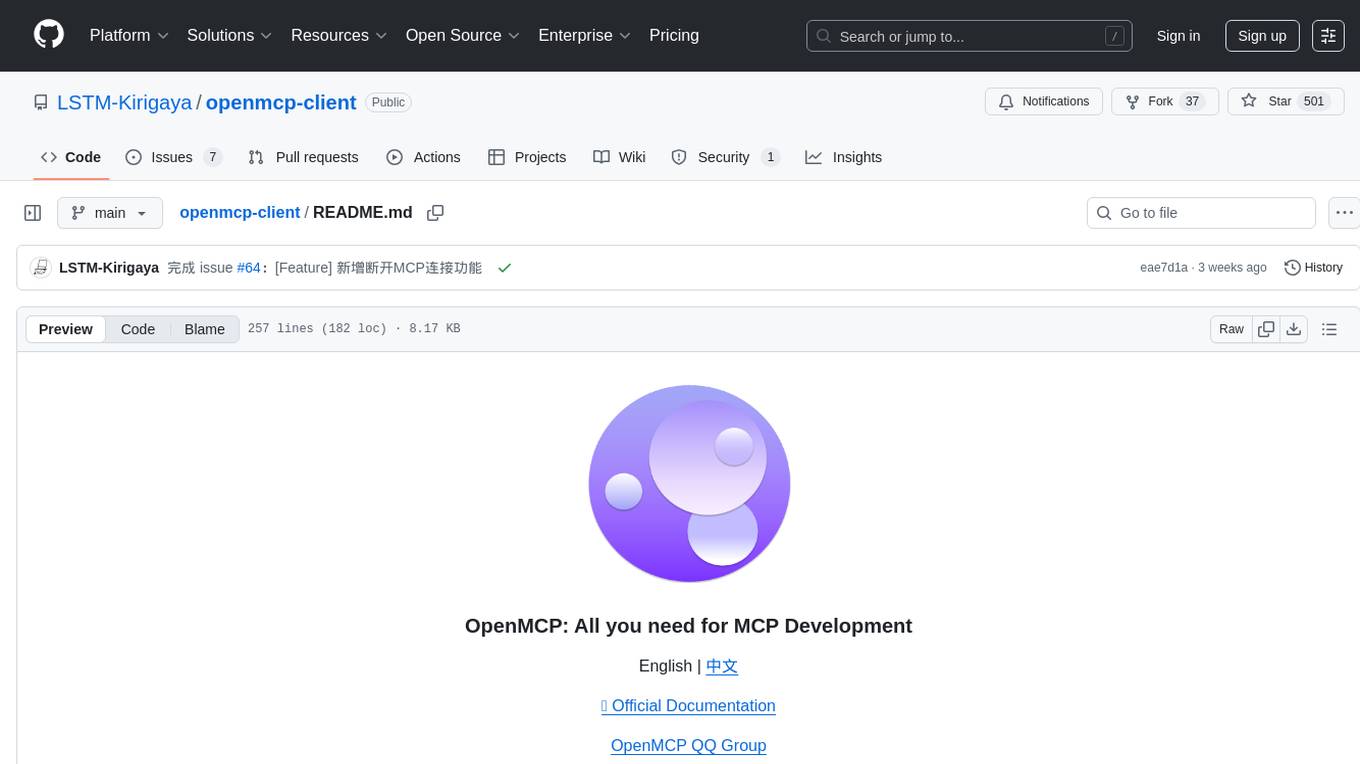
openmcp-client
OpenMCP is an integrated plugin for MCP server debugging in vscode/trae/cursor, combining development and testing functionalities. It includes tools for testing MCP resources, managing large model interactions, project-level management, and supports multiple large models. The openmcp-sdk allows for deploying MCP as an agent app with easy configuration and execution of tasks. The project follows a modular design allowing implementation in different modes on various platforms.
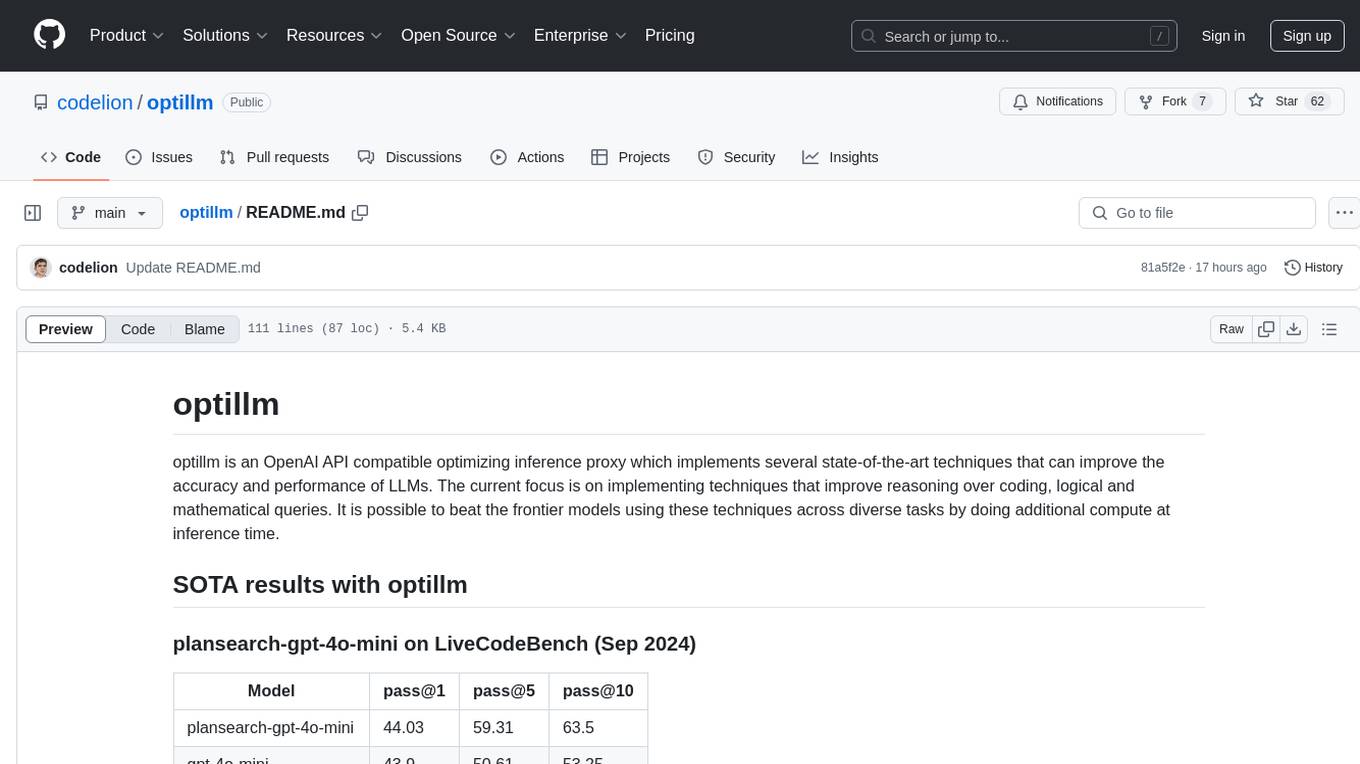
optillm
optillm is an OpenAI API compatible optimizing inference proxy implementing state-of-the-art techniques to enhance accuracy and performance of LLMs, focusing on reasoning over coding, logical, and mathematical queries. By leveraging additional compute at inference time, it surpasses frontier models across diverse tasks.
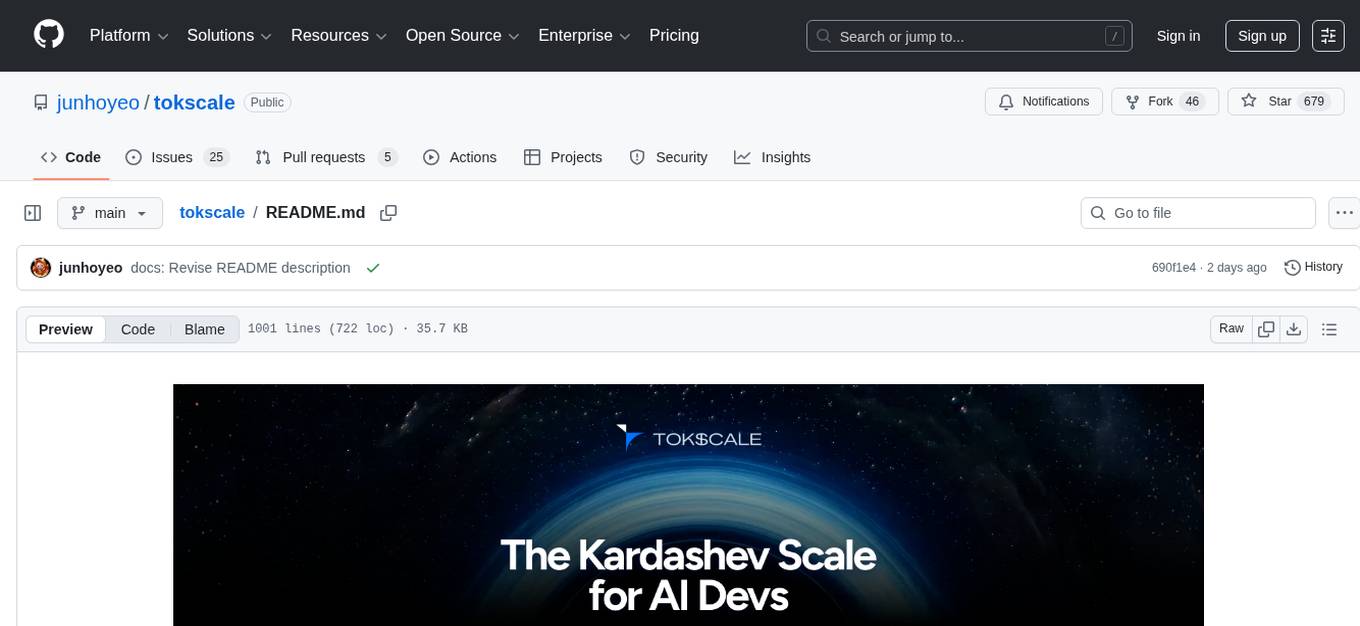
tokscale
Tokscale is a high-performance CLI tool and visualization dashboard for tracking token usage and costs across multiple AI coding agents. It helps monitor and analyze token consumption from various AI coding tools, providing real-time pricing calculations using LiteLLM's pricing data. Inspired by the Kardashev scale, Tokscale measures token consumption as users scale the ranks of AI-augmented development. It offers interactive TUI mode, multi-platform support, real-time pricing, detailed breakdowns, web visualization, flexible filtering, and social platform features.
For similar tasks

aiosmb
aiosmb is a fully asynchronous SMB library written in pure Python, supporting Python 3.7 and above. It offers various authentication methods such as Kerberos, NTLM, SSPI, and NEGOEX. The library supports connections over TCP and QUIC protocols, with proxy support for SOCKS4 and SOCKS5. Users can specify an SMB connection using a URL format, making it easier to authenticate and connect to SMB hosts. The project aims to implement DCERPC features, VSS mountpoint operations, and other enhancements in the future. It is inspired by Impacket and AzureADJoinedMachinePTC projects.
For similar jobs

ciso-assistant-community
CISO Assistant is a tool that helps organizations manage their cybersecurity posture and compliance. It provides a centralized platform for managing security controls, threats, and risks. CISO Assistant also includes a library of pre-built frameworks and tools to help organizations quickly and easily implement best practices.
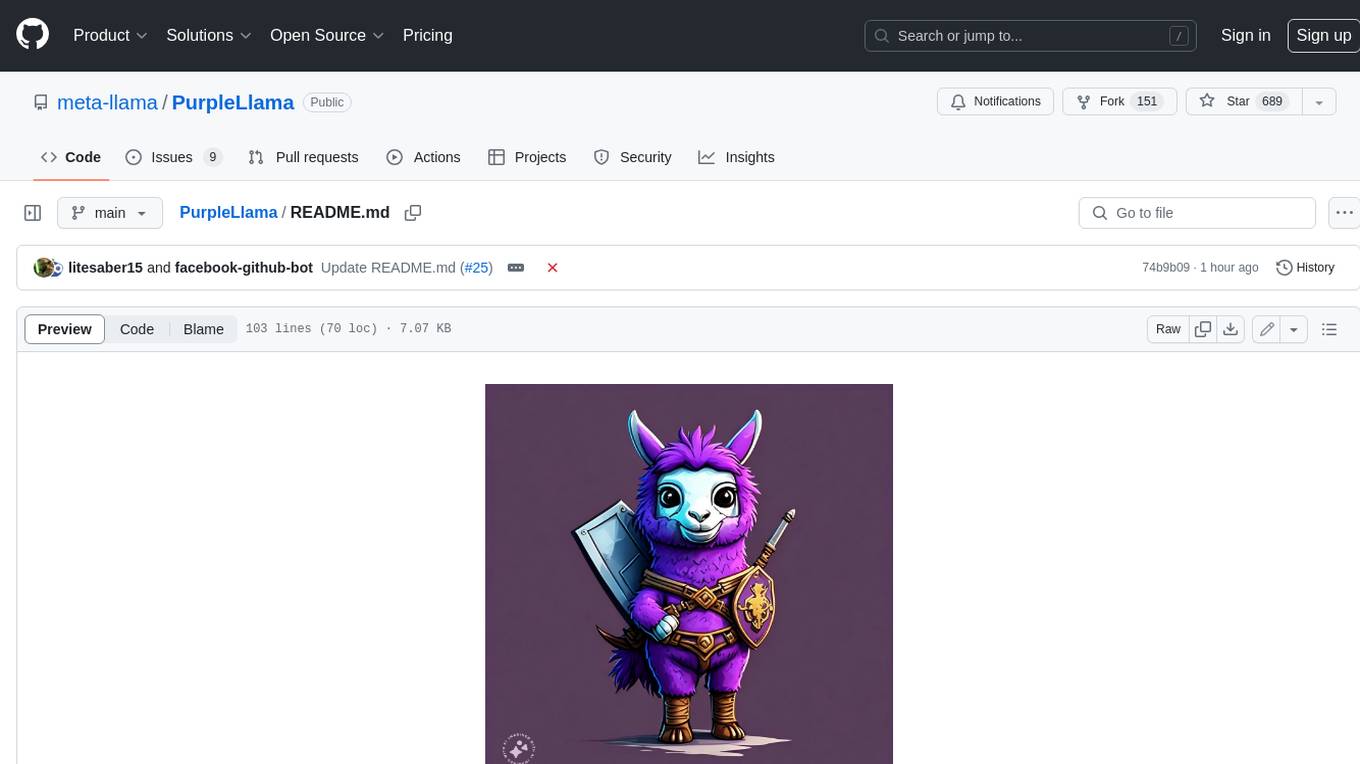
PurpleLlama
Purple Llama is an umbrella project that aims to provide tools and evaluations to support responsible development and usage of generative AI models. It encompasses components for cybersecurity and input/output safeguards, with plans to expand in the future. The project emphasizes a collaborative approach, borrowing the concept of purple teaming from cybersecurity, to address potential risks and challenges posed by generative AI. Components within Purple Llama are licensed permissively to foster community collaboration and standardize the development of trust and safety tools for generative AI.
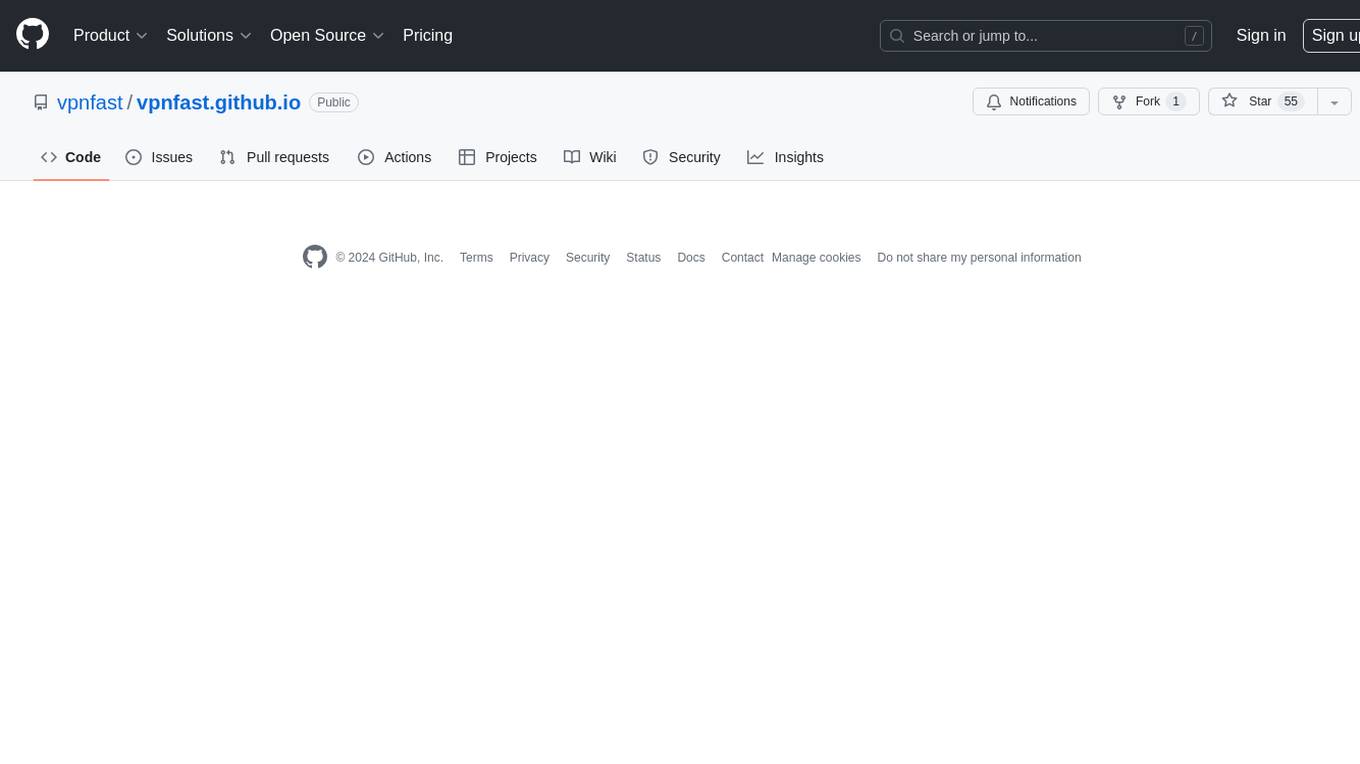
vpnfast.github.io
VPNFast is a lightweight and fast VPN service provider that offers secure and private internet access. With VPNFast, users can protect their online privacy, bypass geo-restrictions, and secure their internet connection from hackers and snoopers. The service provides high-speed servers in multiple locations worldwide, ensuring a reliable and seamless VPN experience for users. VPNFast is easy to use, with a user-friendly interface and simple setup process. Whether you're browsing the web, streaming content, or accessing sensitive information, VPNFast helps you stay safe and anonymous online.
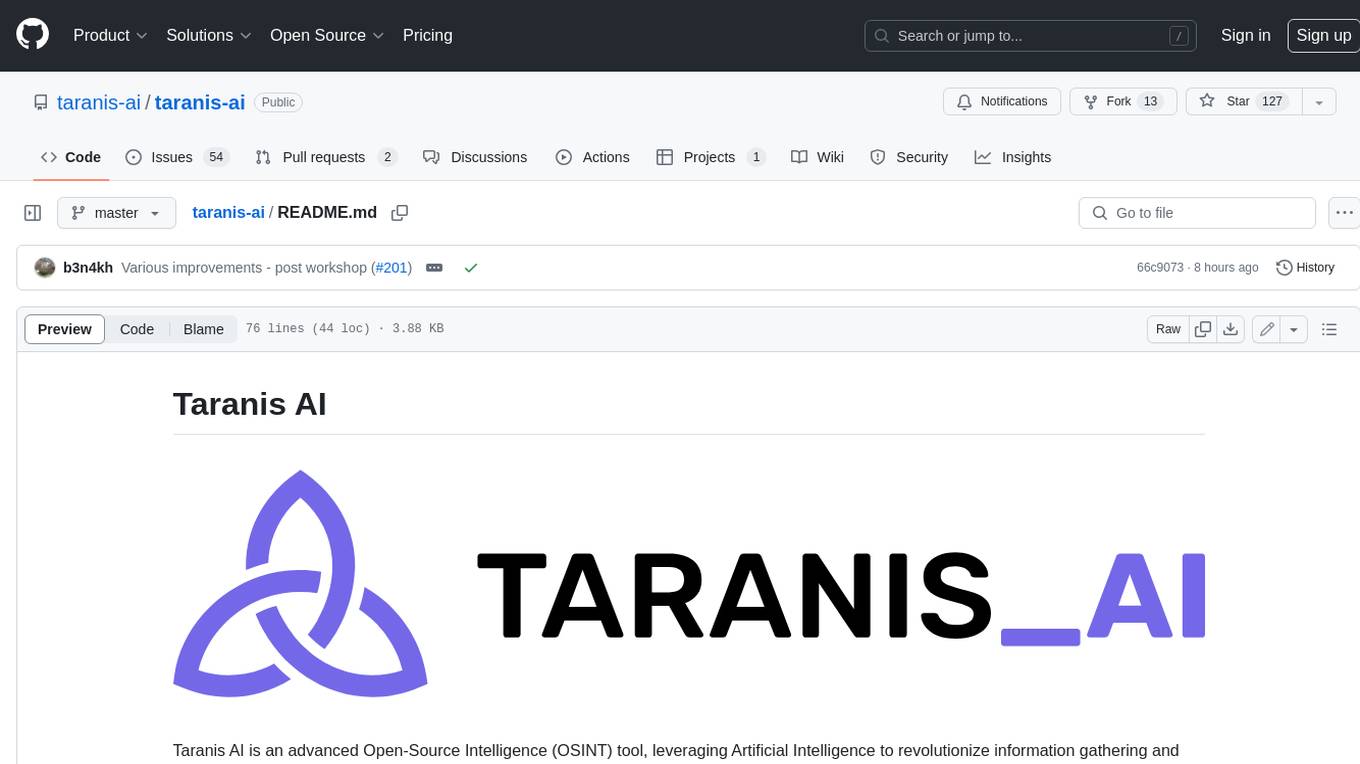
taranis-ai
Taranis AI is an advanced Open-Source Intelligence (OSINT) tool that leverages Artificial Intelligence to revolutionize information gathering and situational analysis. It navigates through diverse data sources like websites to collect unstructured news articles, utilizing Natural Language Processing and Artificial Intelligence to enhance content quality. Analysts then refine these AI-augmented articles into structured reports that serve as the foundation for deliverables such as PDF files, which are ultimately published.
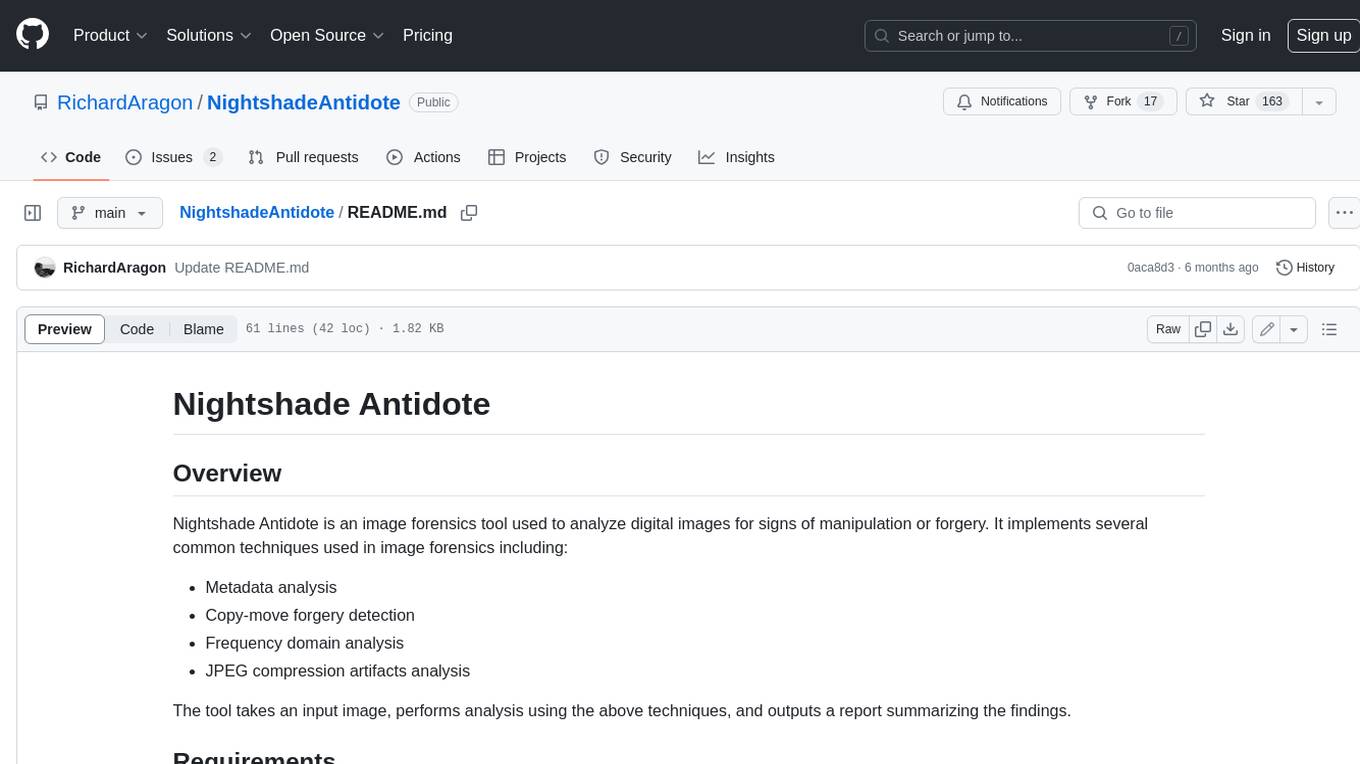
NightshadeAntidote
Nightshade Antidote is an image forensics tool used to analyze digital images for signs of manipulation or forgery. It implements several common techniques used in image forensics including metadata analysis, copy-move forgery detection, frequency domain analysis, and JPEG compression artifacts analysis. The tool takes an input image, performs analysis using the above techniques, and outputs a report summarizing the findings.
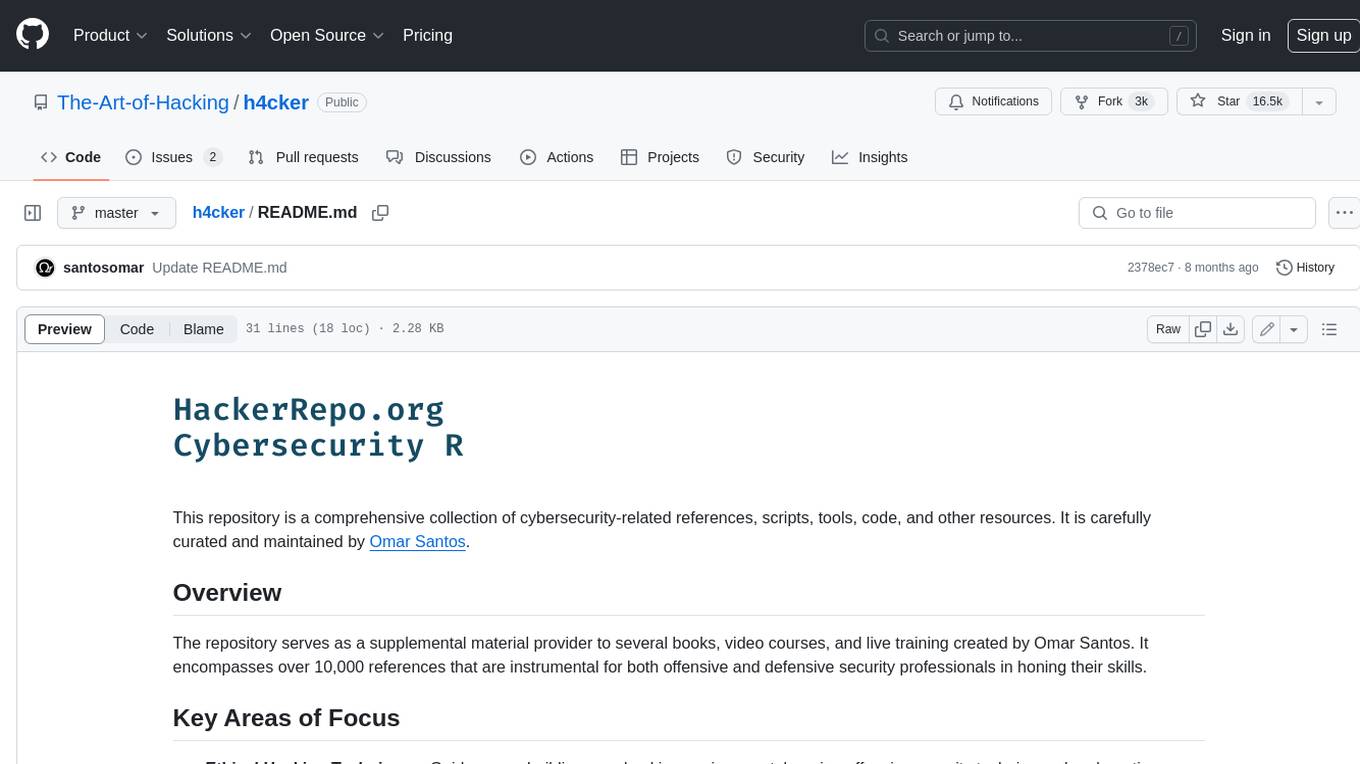
h4cker
This repository is a comprehensive collection of cybersecurity-related references, scripts, tools, code, and other resources. It is carefully curated and maintained by Omar Santos. The repository serves as a supplemental material provider to several books, video courses, and live training created by Omar Santos. It encompasses over 10,000 references that are instrumental for both offensive and defensive security professionals in honing their skills.
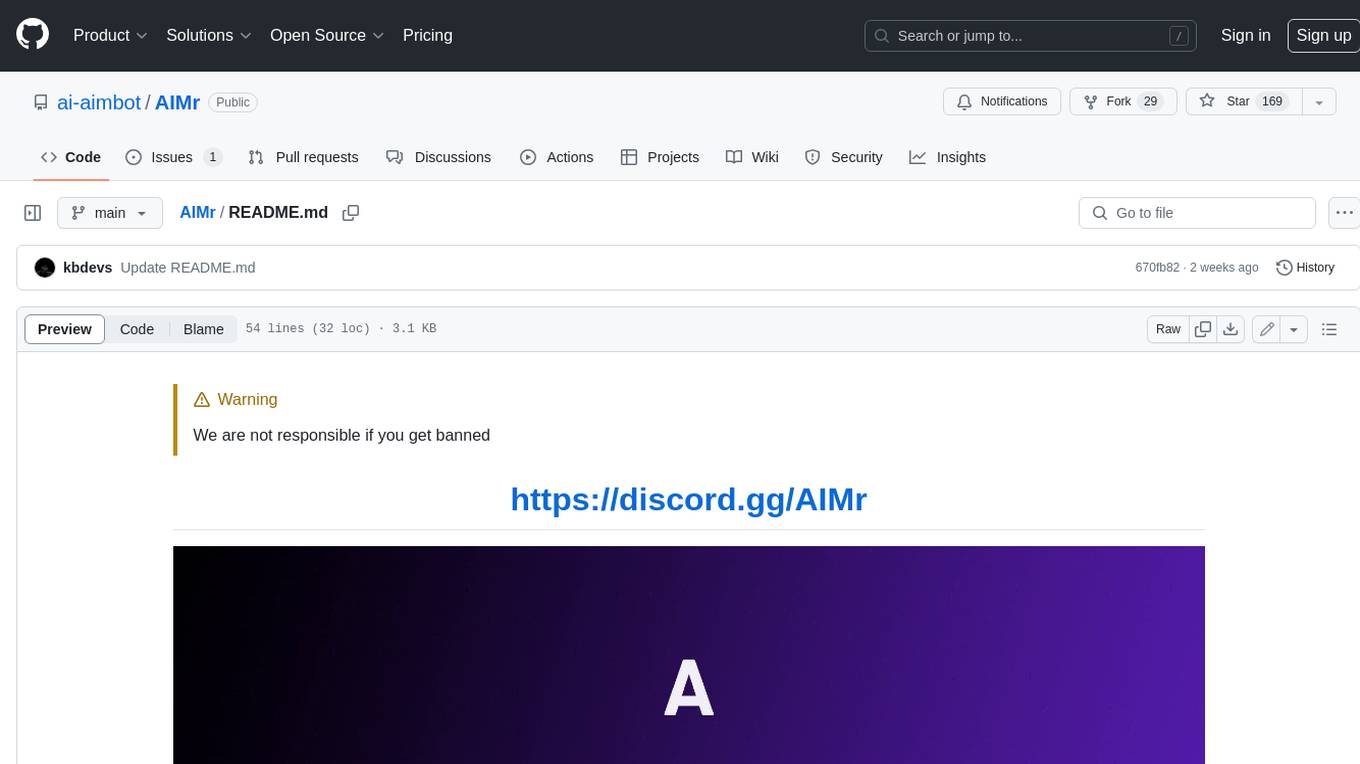
AIMr
AIMr is an AI aimbot tool written in Python that leverages modern technologies to achieve an undetected system with a pleasing appearance. It works on any game that uses human-shaped models. To optimize its performance, users should build OpenCV with CUDA. For Valorant, additional perks in the Discord and an Arduino Leonardo R3 are required.
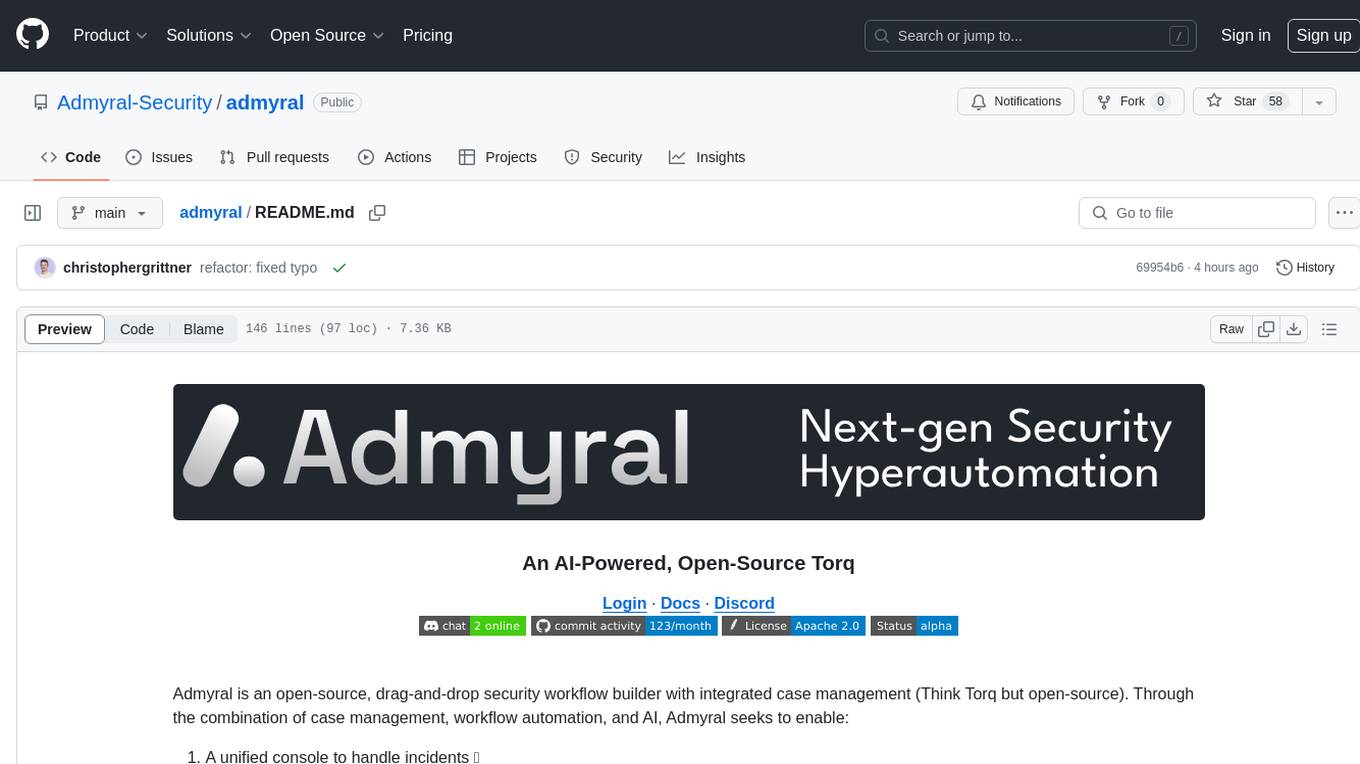
admyral
Admyral is an open-source Cybersecurity Automation & Investigation Assistant that provides a unified console for investigations and incident handling, workflow automation creation, automatic alert investigation, and next step suggestions for analysts. It aims to tackle alert fatigue and automate security workflows effectively by offering features like workflow actions, AI actions, case management, alert handling, and more. Admyral combines security automation and case management to streamline incident response processes and improve overall security posture. The tool is open-source, transparent, and community-driven, allowing users to self-host, contribute, and collaborate on integrations and features.

